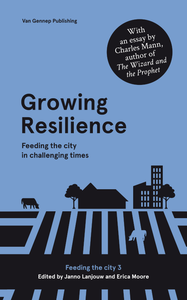The world needs more jobs to meet United Nations Sustainable Development Goal 8 and to keep up with expected population growth. Policymakers stimulate start-ups due to their expected job-generating effect. Despite the increased number of solo self-employed, percentages on graduation from small to larger enterprises are low. This study focuses on entrepreneurs who create jobs, and have passed ‘the one-employee threshold’. What are the considerations of the solo self-employed when making the decision to hire their first employee? 27 Interviews were conducted with entrepreneurs in developed and developing countries. The analysis shows that solo self-employed have considerations about time, skills, trust and opportunities when hiring their first employee. The study finds evidence of effectual behaviour. Trust is important: trust in others (the first employee) and trust in yourself (becoming an employer). To stimulate job creation, policymakers should stimulate effectual behavior that enhances the self-efficacy of the solo self-employed. This is a draft chapter/article. The final version is available in Unlocking Regional Innovation and Entrepreneurship edited by Iréne Bernhard, PhD, Urban Gråsjö, PhD, School of Business, Economics and IT, University West and Charlie Karlsson, Professor Emeritus, Jönköping University and Blekinge Institute of Technology, Sweden, published in 2021, Edward Elgar Publishing Ltd https://doi.org/10.4337/9781800371248
DOCUMENT

Why is it that we know and still act as if we do not know? SMEs are considered engines of job creation and therefore growth and generation of income but is it really true that the solo self-employed and micro entrepreneurs will become small or medium entrepreneurs, e.g. graduate? We knew in the 80’s that this assumption needed to be looked at critically. Research revealed that graduation hardly existed. Practitioners in MSME support and development programmes entertain few illusions about their programmes actually leading to graduation, while NGO and Government policy officers, from behind their desks, often presume that graduation occurs frequently. Actual graduation rates and the extent to which they can be attributed to interventions remain an unresolved and important issue. After more than three decades it is justified to the question whether it is still true that graduation hardly exists? If that is the case one needs to take a critical look into prevailing policies and programs in support of the SME sector.
DOCUMENT

People want to participate and not remain on the side-lines. Most people have good ideas for how to participate, but making those ideas a reality requires money, as well as knowledge, information and an enabling environment. There are, in fact, people amongst the lesser fortunate in society who want to be able to borrow money, take out insurance, transfer money and set aside money as savings at affordable prices and ideally as close as possible. An increasing number of people seized such opportunities empowered by microfinance. Today, a network of microfinance institutions is providing all kinds of services in many countries, ranging from micro loans (microcredit), micro insurance, micro savings to micro pensions. All of those services are offered in a way different to that which banks were used to. A new way of handling money and bringing people and finance together has developed. A network of new organisations has emerged that has gained attention. The success of microcredit has been given the attention it deserved, yet microfinance is now facing criticism. Does the money reach the right people? Why are the interest rates so high? Who actually benefits from it? Why are private investors interested to join? And why are microfinance organisations once set up with clear, social goals sold to private parties on the market? The question is rightly tabled whether financial inclusion is still being pursued. In order to contribute to that discussion, one needs to know what microcredit or microfinance actually is all about. What do we understand by these terms?
DOCUMENT

Women and girls represent only a minority in the penitentiary system and in forensic mental health care. About 6%–10% of both prison and forensic psychiatric populations in Western countries comprise women (see for the most recent offi cial statistics in the UK w ww.gov. uk/government, in Canada w ww.statcan.gc.ca, and in the US w ww.bjs.gov) . However, there seems to be widespread agreement that in the past 20 years female offending has been on the rise, especially violent offending and particularly among young women ( Miller, Malone, and Dodge, 2010; M oretti, Catchpole, and Odgers, 2005) . Overall, a disproportionate growth of females entering the criminal justice system and forensic mental health care has been observed in many countries (for reviews, see Nicholls, Cruise, Greig, and Hinz, 2015; Odgers, Moretti, and Reppucci, 2005 ; Walmsley, 2015) . In addition, it should be noted that the ‘dark number’ for women is suggested to be bigger than for men. Offi cial prevalence rates of female offending might constitute an underestimation as women usually commit less reported offences, for example, domestic violence (N icholls, Greaves, Greig, and Moretti, 2015) . Furthermore, it has been found that – if apprehended – girls and women are treated more leniently by professionals and the criminal justice system. Generally, they receive lower prison sentences and are more often admitted to civil psychiatric institutions instead of receiving a prison sentence or mandatory forensic treatment after committing violence ( Javdani, Sadeh, and Verona, 2011 ; Jeffries, Fletcher, and Newbold, 2003 ). Hence, although female offenders compared to male offenders are a minority, female violence is a substantial problem that deserves more attention. Our understanding of female offenders is hindered by the general paucity of theoretical and empirical investigations of this population. In order to improve current treatment and assessment practices, our knowledge and understanding of female offenders should be enlarged and optimised (d e Vogel and Nicholls, 2016 ).
DOCUMENT

Wereldwijd onderzoek: Hoe gebruiken nieuwsmedia social media? Jongeren lezen geen krant meer, ze kijken op hun smartphone die ze altijd bij de hand hebben. Binnen het lectoraat social media en reputatiemanagement van NHL hogeschool te Leeuwarden heeft een groep internationale studenten in 12 landen onderzoek gedaan. Hierbij hebben ze meer dan 150 social media sites bestudeerd van nieuws media. De resultaten maken deel uit van een internationaal onderzoek van NHL Hogeschool en Haaga Helia University. De onderzoeksvraag was: Wat speelt zich af in de nieuwsmedia? Persbureaus kunnen het overzicht gebruiken om hun social media te optimaliseren. En voor ieder die journalistiek een warm hart toedraagt is het interessante informatie over de nieuwsmedia in een overgangssituatie (2nd edition)
DOCUMENT

We examined the various career paths of PhDs in the Netherlands. In this publication, we feature the personal stories of ten of our study participants, detailing their careers both within and outside of academia. The ten portraits of PhD graduates are complemented by three portraits of employers describing their experiences working with PhDs. The personal accounts featured in this publication contain a wealth of information and recommendations for PhD students, universities and employers alike.
DOCUMENT

Even in a less eventful year, it’s no easy feat: working to make our food supply healthy and sustainable. But 2020 brought a spate of new challenges. It was the year of Brexit, Black Lives Matter, and the COVID-19 pandemic. A year of hope and loss and solidarity, of masks and worries and Zoom calls. Of infection sweeping through the meatpacking industry and sometimes, of empty supermarket shelves. It was also the year that brought us the glimmering realisation that everything could be different. When so much has changed – how we work, who we spend time with, how far we venture from home – what all might be possible for food and for farming? In Flevo Campus’s latest collection of essays, thirteen journalists, scholars, and thought leaders from the US, the Netherlands, and the UK share insight into the question: How can we build resilience into our food supply – and grow more resilient ourselves? Every year, Flevo Campus publishes the best work on feeding the cities of today and tomorrow. This year’s edition includes essays by Stephen Satterfield, Charles C. Mann, Herman Lelieveldt, Hester Dibbits, Kelly Streekstra, Sigrid Wertheim-Heck, Anke Brons, Joris Lohman, Sebastiaan Aalst, Marian Stuiver, Frank Verhoeven, Emily Whyman, and Lenno Munnikes.
DOCUMENT

This report maps different programs that supportrefugees on the road to entrepreneurship. The municipality of The Hague, along with the refugee and migrant support organization EnterStart (MigrantINC) asked for an evaluation of the program The Hague Test Garden (from now on called The Test Garden) where refugees can ask for help starting their own businesses. The evaluation is not just based on the experiences in The Test Garden; other programs have been included in the evaluation to come to a broader view of the road to entrepreneurship and the obstacles encountered. The increased inflow of refugees in Dutch society and on the Dutch labor market has generated different support programs for starting-up a business. Some of these programs already existed but shifted to accommodate the needs of this specific target group. Other programs were initiated to support refugees because of perceived barriers in Dutch society. Most programs are private initiatives, funded on a project basis. In the Netherlands, refugees that hold a residence permit are called ‘status holders’. Upon arrival, they received a temporary permit for at least five years. They need to follow a civic integration and language program and they are expected to be part of the (regular) education system or labor market as soon as possible. The Test Garden started in 2016, a time when multiple support systems for refugee-entrepreneurs began their programs. This report starts with a short overview ofrefugee flows to the Netherlands. The main part of the report consists of the comparison and evaluation of the different programs. The information was gathered through literature, websites, and in-depth interviews with program managers and others involved. Interviews with the participants are only included for The Test Garden (Appendix 1 gives an overview of the meetings and interviews). LinkedIn: https://www.linkedin.com/in/karijn-nijhoff-89589316/
DOCUMENT
